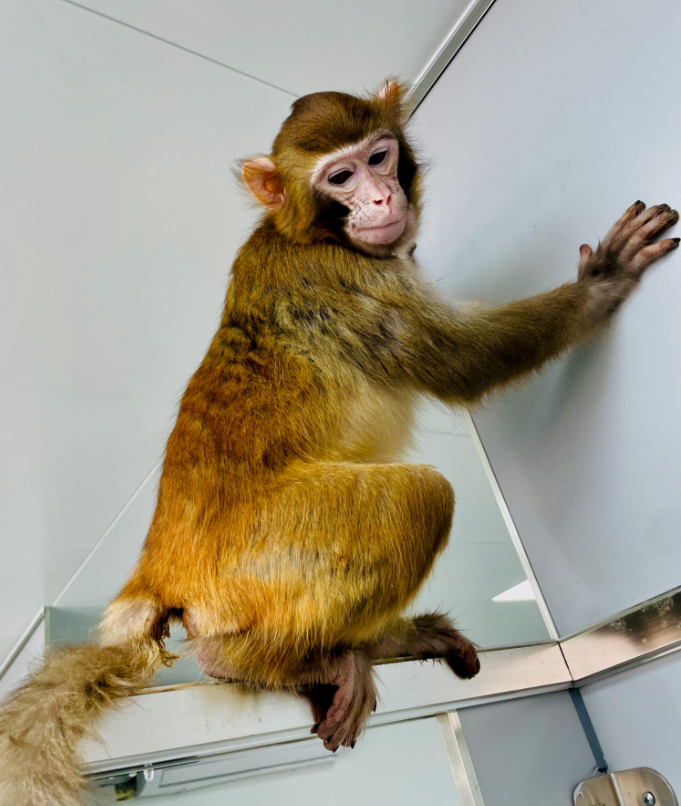Scientists in China have successfully cloned a rhesus monkey that has managed to survive for more than two years after its birth. Off the back of this feat, the researchers claim their newly refined methods could provide a “promising strategy for primate cloning” in the future.
His name is “ReTro”, named after one of the techniques used in his creation: trophoblast replacement.
It’s not the first time a rhesus monkey has been “cloned.” In 1997, a cloned rhesus monkey called Tetra was created by US scientists using a technique called “embryo splitting”, whereby an early-stage macaque embryo was split into multiple parts, creating a set of genetically identical twins. This “relatively low-tech” means of cloning is sometimes called artificial twinning.
In this latest study, scientists from the Chinese Academy of Sciences and the University of Chinese Academy of Sciences managed to successfully clone a healthy male rhesus monkey through a more complex technique, known as somatic cell nuclear transfer (SCNT).
SCNT is the same technique used that’s been used to clone numerous species of mammal, including “Dolly the sheep”, as well as mice, ferrets, rabbits, dogs, pigs, goats, cows, and the ill-fated Pyrenean ibex.
It involves inserting the nucleus of a somatic cell (any cell other than a sperm or egg cell) into an egg cell that has been stripped of its nuclei. The reconstructed cell can then be stimulated to undergo cell division and develop into a fully-fledged organism that is genetically identical to the donor of the somatic cell nucleus.

Another photograph of “ReTro” in the lab.
Image credit: Qiang Sun
This cloning technique has been attempted on rhesus monkeys before – but it ultimately failed. A study in 2022 claimed the birth of a somatic cell cloned rhesus monkey and it died less than 12 hours after its birth.
However, SCNT has been demonstrated in another similar species of monkey. In 2018, researchers created two cynomolgus monkey clones, named Zhong Zhong and Hua Hua, marking the world’s first successfully cloned primates through SCNT.
The new study aimed to clone a rhesus monkey to better understand the mechanisms of primate reproductive cloning techniques and refine the processes.
Through the creation of ReTro, the team managed to highlight abnormalities in the way genetic information can be read by the developing cloned embryo and its placenta. They overcame this problem by developing a new method that ensures the cloned embryo develops with a healthy placenta.
It almost goes without saying that the cloning of primates – an order of mammals that includes humans – raises a host of ethical questions. With every new study like this, critics will often ask whether we are on a slippery slope toward human cloning.
The new paper does not touch on these thorny moral conundrums. Scientifically speaking, there are several steps to make before human cloning can even be contemplated. For instance, scientists have yet to clone any member of the great ape genus, such as a chimpanzee or gorilla.
Nevertheless, the rapid advancement of primate cloning techniques is reaching a point where the world needs to ensure robust ethical frameworks are set in stone before Pandora’s box is opened.
The study is published in the journal Nature Communications.
Source Link: Meet "ReTro", A Monkey Successfully Cloned In China That's Survived For 2 Years